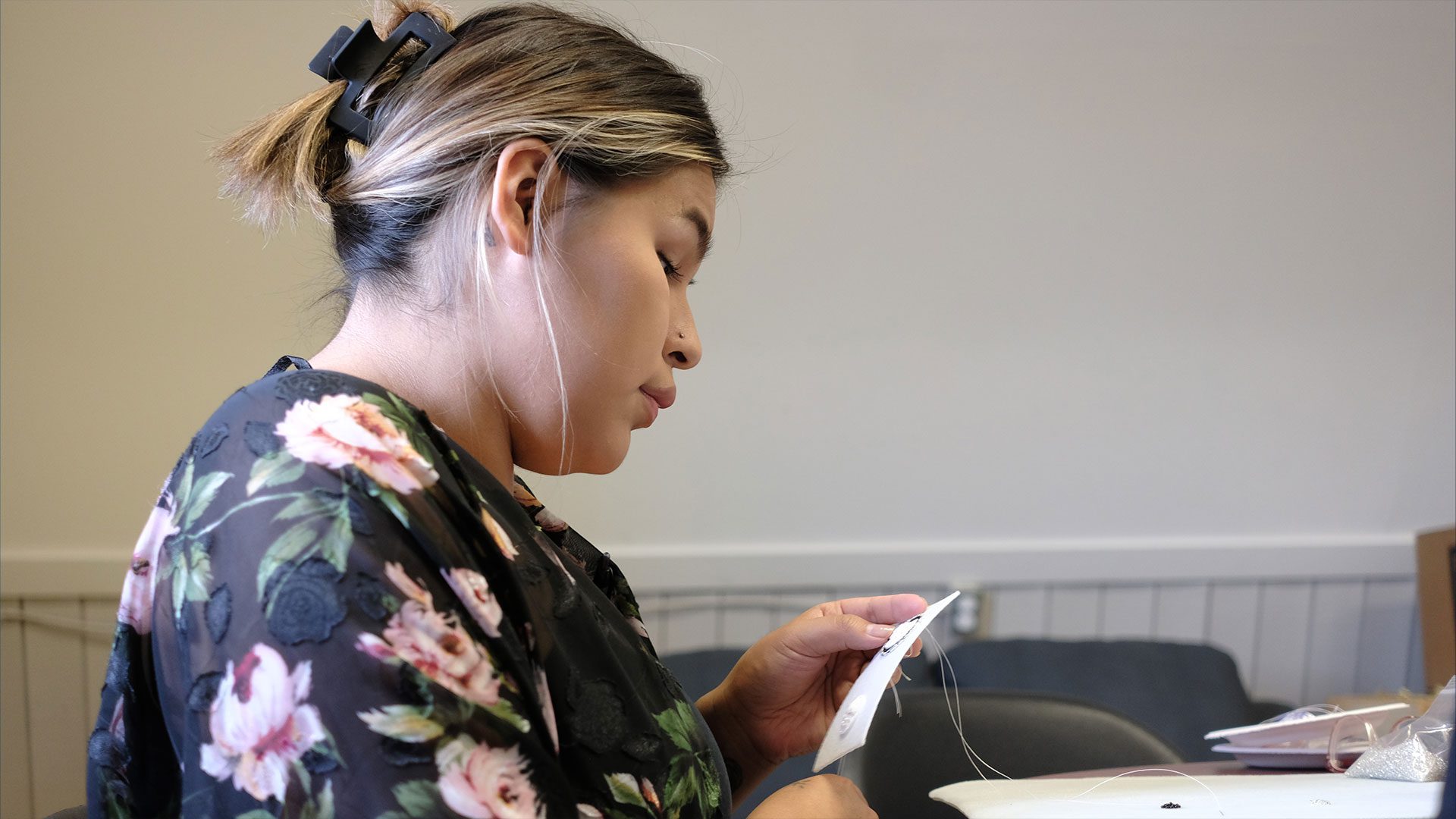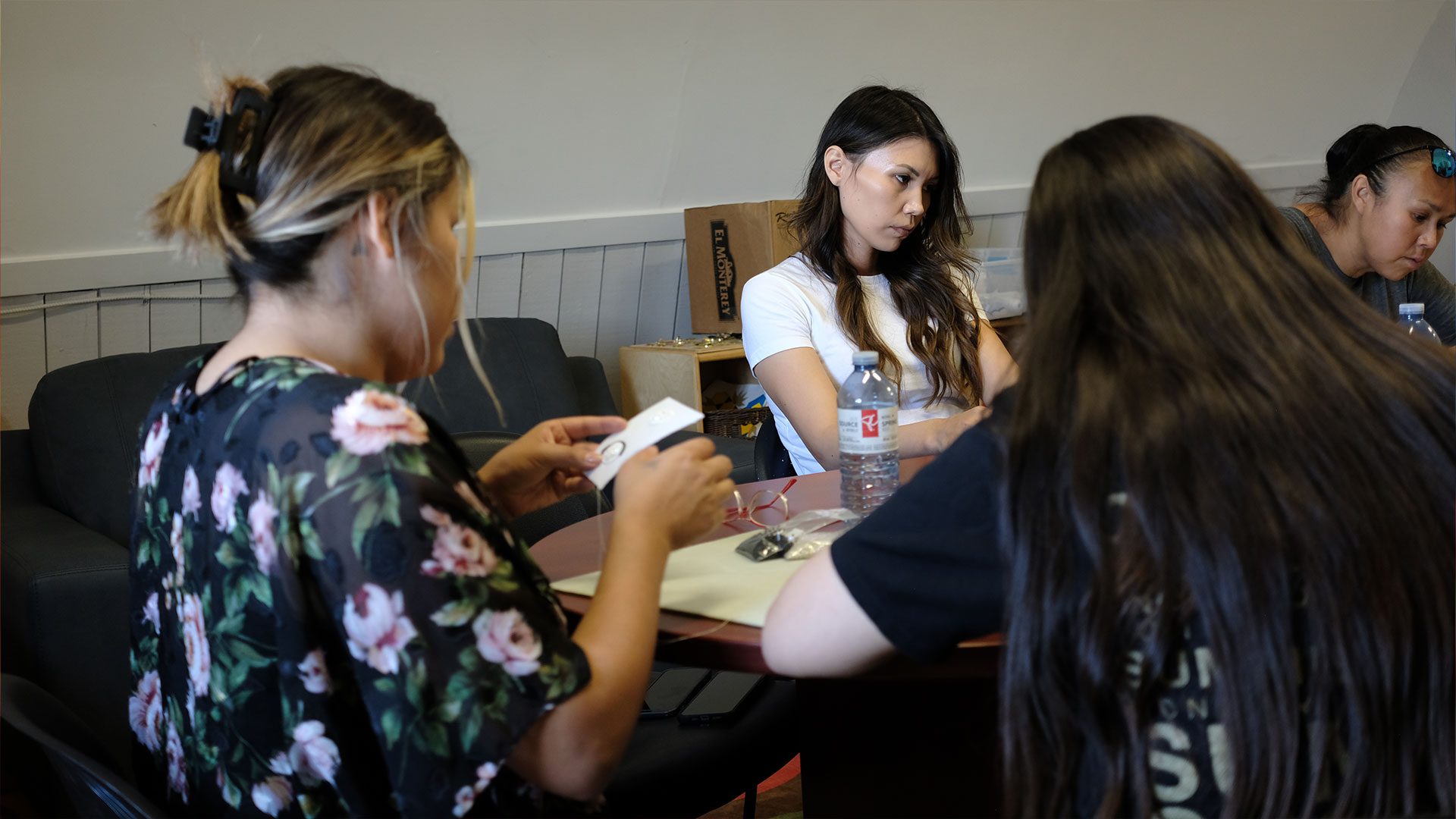The Tłı̨chǫ government is taking a homegrown approach to encourage healthy lifestyles.
In the 2,000-person dene community of Behchokò, Northwest Territories, a weekly women’s support group called Healing Path has been gaining traction.
It’s part of the Addictions to Wellness strategy which relies on the guidance of those with lived experience in healing in all five Tłı̨chǫ communities.
Money for the strategy comes from the federal and territorial governments and the Dogrib Treaty 11 Council through the Tłı̨chǫ Community Services Agency.
“The strategy will have programs, aftercare, resources, things to encourage sobriety and supports that we don’t really have in the Tłı̨chǫ region,” said Stephanie Rabesca, a coordinator with the Tłı̨chǫ healing path who has been organizing the informal social gatherings.
“We are optimistic that it will fill in this gap in services to help encourage hope and support those in recovery.”
The women’s support group started meeting virtually in early April and has been meeting in person for the last month.
The meetings have been advertised on the local radio and on community bulletin boards, but it’s been old-fashioned word of mouth that’s drawn in the majority of participants.
“People who come here are happy and they start telling people about it and then people call me and ask more information on what it is. I also get local guests to come out or facilitators to be that support system.”
Boronica Mantla, is this week’s local speaker, sharing her story of addiction and recovery to inspire discussion.
“I am motivated to help the people around me. When Stephanie asked me, I got ready by writing a speech and then thought ‘what am I doing?’ It’s my life story I’m just going to speak from the heart and that’s what I did,” Mantla said.

Mantla unapologetically discusses her challenges with relapse, paying off debt from addiction and planning for a brighter future that includes applying to post-secondary.
“It’s not total strangers here and these people aren’t going to tell my story. I trust everyone that everyone is here for a reason and has their own story,” she said.
One by one participants open up about their personal and familiar encounters with drugs and alcohol, unhealthy relationships and intergenerational trauma.
Kassandra Migwi, shares her story of wellness through art.
“It’s always hard to just talk so I figured why not just be busy with your hands,” Miwgi said. “I know it’s hard for people to have eye contact, so you are all busy but at the same time you’re all connected.”
She’s this week’s cultural facilitator, leading the beading portion of the night.
“I come from a strong family of beaders and it’s helped me cope with my mentality and my self-care to process stuff,” Migwi said.
She discusses healthy coping strategies she employs when she separated from her three children as she attends classes at attends classes in Edmonton at the University of Alberta.
“It’s all about community, it helps knowing you aren’t the only one and that there’s other people in your community going through the same stuff,” Migwi said.

The challenges community members face when having to leave the north to seek treatment down south is a reoccurring topic in the sharing circle.
“Being back (after treatment) kind of discouraged me,” Mantla said. “There was a lot of alcoholism around me and there were no programs like this back then.”
A big step for the Tłı̨chǫ healing path will be moving from an old, small space on the outskirts of town into a newly constructed permanent wellness centre in the heart of Behchokò this fall which will allow for continuous programming.
Rabesca noted the goal of the support group is to encourage people to keep coming back.
“We also always do aftercare to so either I or the facilitator will call participants to just check in and see how they are doing to make sure they have that support,” Rabesca said.









